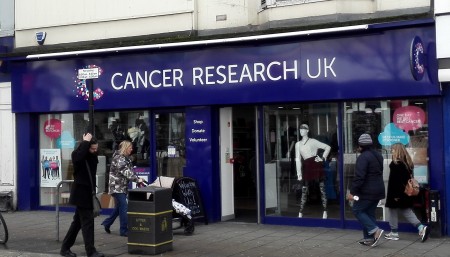Words by Anurag Venugopalan, Staff Writer
The UK’s cancer research has taken a hit due to the pandemic with a leading charity saying the decline is linked to impact of the pandemic on fundraising events and charity shops.
It has led to a significant drop by almost a third in cancer research projects and it is not clear whether the funding will bounce back.
The National Cancer Research Institute (NCRI) had revealed that funding for cancer research had been on the increase in the five years before the pandemic and that there was a subsequent reversal in the spending as it fell by 9% in the year 2020-21.
NCRI also provided figures where we can see that cancer research fell by almost 32% between 2019 and 2020, while the money awarded to these projects fell by 57%, from £3.03bn in 2019 to £1.29bn in 2020.
It also revealed that several of its partners had to cut down staff and make difficult decisions on the priorities on how and what projects to fund for cancer research.
NCRI’s chief executive officer, Dr. Iain Frame, said, “We are concerned that – due to the substantial decrease in the number and lifetime value of the new cancer research funded – the spend on cancer research could continue to decline over the next few years. This is because as existing projects that have been funded come to an end, there may not be new projects to replace them.”
Main areas of research affected by the lack of funding was cancer prevention, while bladder cancer and cancer of the intestine were some of the diseases that took the major hit.
Previously, charities had raised concerns over the financial impact of pandemic on their fight against cancer. Dr. Iain Foulkes, executive director of Research and Innovation at Cancer Research UK, stated that “Successive lockdowns forced the closure of our shops, fundraising events were cancelled and volunteering activities stopped, all of which limited our ability to raise money,”
According to Cancer Research UK, more than 10,000 cases of bladder cancer are reported each year with deaths amounting to 5,500. It also states that 49% of these cases are preventable.
However, Foulkes said that it was initially thought that Cancer Research UK would see a £300m drop in income over the three years but the figure is expected to be about £250m as the shops and events reopen.
“This drop in income has disrupted our research funding streams, but we have been able to minimise the impact on our portfolio of ongoing research, protect our research base, and limit the damage to researchers’ careers,” he said.
The impact on cancer has been big as it not only affected cancer research but also cancer patients, as nearly 50,000 cases went undiagnosed, up to 740,000 potential cancer cases were missed and over 30,000 patients had their treatment delayed.
‘Recent NHS England data confirms the huge challenge still facing the NHS, with performance against cancer waiting times going from bad to worse over the last year,’ said Macmillan Cancer Support’s Minesh Patel.
‘By 2030, we anticipate around 3.3million people will be living with cancer in England. It will have a devastating impact on many people with cancer who are experiencing agonising delays and risk a worse prognosis.’

